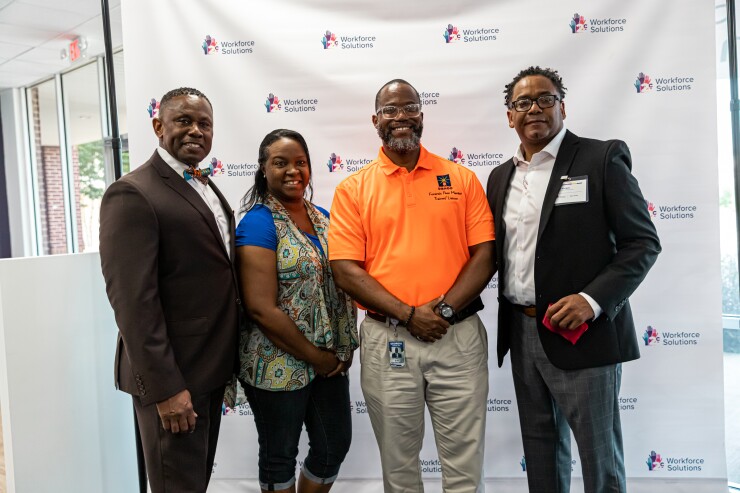At the age of 19, Ladji Ruffin entered the prison system. Twenty-three years later, he emerged as a business owner.
"I didn't necessarily have to deal with the stigma coming out, because I had a skill set," Ruffin says. "I just created my own thriving company."
Ruffin's post-prison trajectory is not the norm, but it's one he believes could become far more common via
"The beautiful thing about second chance programs is that it gives reassurance to the employers that he or she has the necessary skill set to be able to be employed," says Ruffin. "I have lived experience that makes [this] my passion."
Read More:
Despite expanding government and corporate initiatives, about 75% of formerly incarcerated people remain unemployed a year after release, according to a 2022 White House brief. Many report facing significant stigma in the hiring process, and even when they do manage to secure jobs, they often have lower overall wages and work in more harmful conditions. Those with jobs, on average, only earn about $10,090 per year, according to data from the IRS.
Second-chance hiring programs, however, have the potential to minimize stigma and push for equal opportunity in the workplace. For this particular population, these programs are not only a chance to secure employment, but can often help generate access to other essentials like housing and healthcare.
"There's a significant labor shortage," says Tem Morgan, senior vice president of 2C Workforce Solutions, an Atlanta-based hiring agency. "You put two and two together, and you realize that we can help individuals that really want to work and want to provide for their families. They just need that second chance."
While
Read More:
For Ruffin, personal savings along with his newly expanded skill set empowered him to launch his own business upon release. He's since secured contracts with companies in Canada as well as school systems throughout the U.S., and has studied at the Morehouse School of Medicine and Mercer University. But despite their clear impact, second chance programs are not widely available within the prison system: Ruffin's own participation required above-average test scores and a high school diploma, barriers for many members of the incarcerated population.
Proponents are hopeful that access to these programs will soon expand. In recent years, companies such as JPMorgan and American Airlines have made more of a push to recruit the formerly incarcerated. In 2022, roughly 10% of JPMorgan's new recruits had criminal records, as reported by the Wall Street Journal. In 2022, the Biden Administration announced it would funnel over $100 million towards job training and re-entry programs for federal prisoners.
Still, having a past record typically cuts employer callback rates in half, according to research from the Prison Policy Institute. And of the over 12,000 staffing agencies in the U.S., only few like 2C Workforce Solutions specialize in serving the nearly 600,000 individuals leaving from prisons each year.
For their part, the team at 2C continue to push their mission forward. Morgan believes that second chance hiring programs can help those with a past criminal record not only secure employment, but a job aligned with their goals. While the majority of formerly incarcerated people work in waste management services and manufacturing, according to the U.S. Department of Justice, 2C Workforce has made a push to recruit for e-commerce, admin, information technology and customer service positions — jobs with more potential for career advancement.
To help do so, 2C offers interview training and partners with nonprofits to provide mental health services, transitional housing, and transportation. In addition to securing employment, individuals often need help transitioning from life in prison as they take on new responsibilities like running a household. Such outside factors can often intersect with their work life, Morgan believes.
"We're just not a staffing company, we are a resource center," Morgan says. "In order for you to be successful at a job, you'd obviously need a place to stay, you need clothes. Before you get your first paycheck, you need food. So here are some resources that we're going to provide to you."
These grassroots efforts, in Ruffin's opinion, may ultimately prove to be more impactful than policy change alone.
"By having a real conversation with employers, you could change peoples' hearts," says Ruffin. "It's not just policies, but people in the community vouching and saying, 'Hey, I think we need to take another look at this."
Read More:
While second-chance programs can help businesses, it is impossible to overlook the societal impact these programs can have, as well as the life-changing impact for individuals emerging from prison.
"If you get out of prison, and you don't have a job, don't have a place to stay, and don't have transitional mental health needs addressed, you're going to return back to prison again," Morgan says."But if you can fill your days up with a good paying job, that may change the paradigm in your mind from 'I am a felon' to 'I am content and I have value.'"






